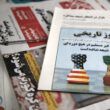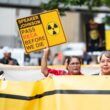An opportunity to explore nontraditional solutions
By Stephen M. Goldberg, November 21, 2008
The International Energy Agency (IEA) recently published the latest edition of its World Energy Outlook. The report states that nuclear capacity must grow to at least 1.8 times current capacity by 2030 if global temperature increases are to be kept to 2 degrees Celsius. “[Political action] is urgently needed to ensure secure energy supplies and to curtail rising emissions of greenhouse gases,” according to IEA Executive Director Nobou Tanaka in November. “We must usher in a global energy revolution by improving energy efficiency and increasing the deployment of low-carbon energy.”
The IEA report offers an excellent backdrop to discuss the nuclear policies of the incoming Obama administration.
I agree with Miles Pomper that Obama’s international nuclear energy efforts should be focused on diplomacy, cooperative research, and new economic incentives. Two of Miles’s proposals have particular merit in my opinion–support for grid-appropriate reactors and encourage developing countries considering nuclear power to forgo proliferation-sensitive uranium enrichment and spent fuel reprocessing facilities.
As Miles points out, this effort could include financial, human capacity-building, and industrial and regulatory infrastructure assistance. Argonne National Laboratory has been engaged in a series of studies that analyze the infrastructure requirements and the economics of new regional nuclear power plant deployments. In a 2007 study, we focused on Eastern Europe and discovered that Poland would benefit from partnering with its Baltic neighbors to import electricity derived from new nuclear generation facilities in Lithuania, prior to Poland deploying its own nuclear plants. One of the main drivers in implementing nuclear energy in the region is meeting future electricity generation requirements in a constrained carbon environment.
The energy research agenda for the new administration should focus on such innovative approaches, if nuclear energy is going to make a significant impact on climate change. For example, enhanced computational simulations could identify and target the physical processes that underlie the design of both the next generation of nuclear plants and advanced nuclear fuel cycle facilities, which could improve the economics, safety, and safeguards of future nuclear plant operations. Research on advanced materials would also be beneficial, as would a new generation of high performance and long-lived nuclear fuels, system components, and reactor vessels, which could advance the economics, security, and safety of future nuclear reactors.
An additional domestic proposal that the Obama administration should consider is a more direct link between new nuclear energy and “smart” grids, plug-in electric hybrid vehicles, and other electricity end-uses that are tied to expanded clean energy jobs, reduced dependency on petroleum, and more sustainable uses of natural resources such as expanded generation of clean water through desalination technology.
In light of the credit squeeze, developers of new nuclear energy projects need to be more creative in securing affordable financing. Prospects for financing these projects might improve if long-term power purchase agreements with plug-in electric hybrid vehicle manufacturers were to be implemented. An example is the deal between French carmaker Renault and power group Électricité de France (EDF to develop a mass-production electric car. The two companies have announced that by January 2010, they will complete a study of the engineering, regulatory, and financial requirements necessary to set up a nationwide electric vehicle infrastructure in France. One of the most intriguing economic opportunities that such a study could explore is how EDF could offer consumers a reliable, economically competitive pricing structure for electricity through long-term power purchase arrangements with EDF, which uses nuclear energy to produce 87.5 percent of its electricity generation.
Topics: Nuclear Energy
Share: [addthis tool="addthis_inline_share_toolbox"]














